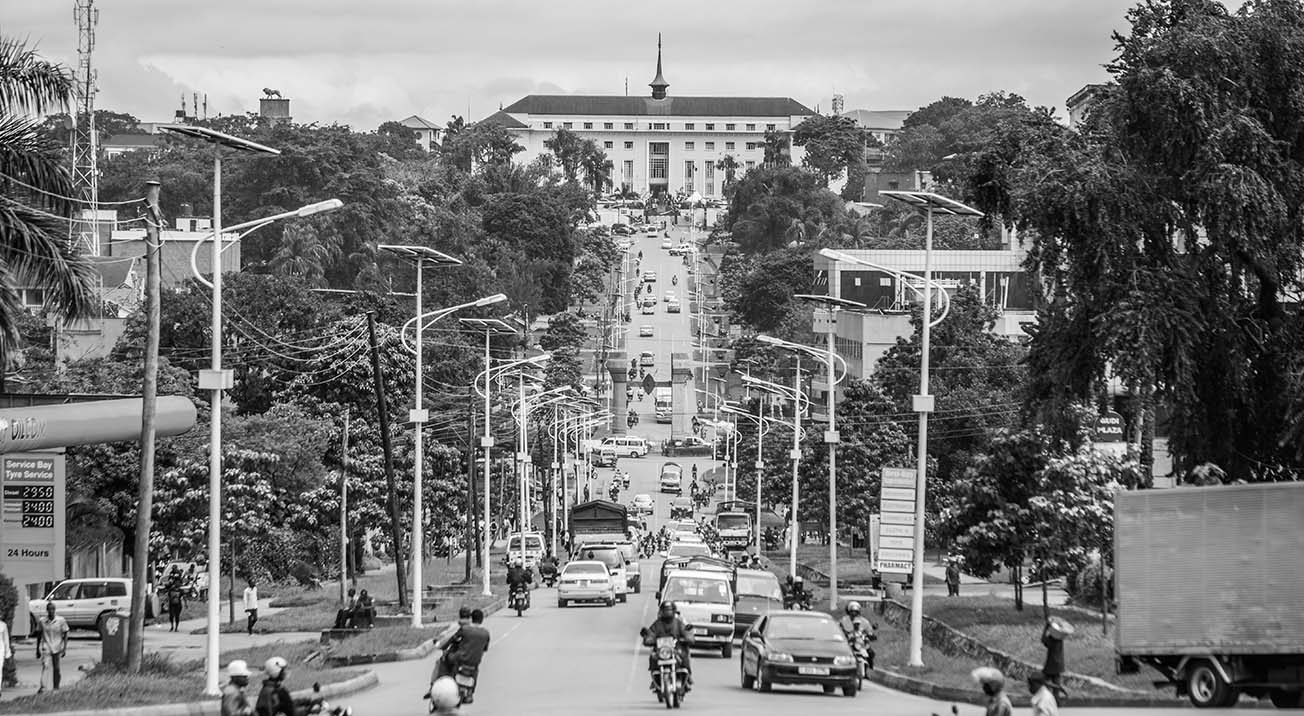What follows will outline how the coca economy might be one specific and persistent factor that leads people towards a criminal life path, and explain how a recent study establishes this for rural Peru. Children are put on a criminal life path when they invest in criminal human capital rather than formal schooling, when the […]
Development
The majority of the world’s population lives in low-income countries where market failures are pervasive and governments’ budgets are tight. Research in development economics addresses the following questions:
What keeps individuals in poverty?
What keeps firms small and unable to expand?
Which policies have been effective at enabling resources to flow more easily to their most productive use, thus raising incomes?
What approaches have been effective at improving government performance, e.g. through incentives for agents delivering public services and the design of the tax system?
Latest articles
Liberation Technology: Mobile Phones and Political Mobilization in Africa
Can digital information and communication technology (ICT) foster mass political mobilization? In our 2020 Econometrica piece (Manacorda and Tesei, 2020), we use a variety of georeferenced data for the whole of Africa covering a 15-year span to investigate this question and explore channels of impact. The spread of digital ICT has fed a wave of […]
Achieving Scale Collectively
Most firms in developing countries employ only a few workers, if any (Hsieh and Olken, 2014). A key policy concern is that their small size may prevent firms from adopting technology: technology is often embodied in large machines, and small firms might not have the scale to justify the investment. As a result, firms may […]
Cash Transfers and Nonlinear Prices
Cash transfer programs have become increasingly popular in developing countries over the past twenty years. Recently, World Bank researchers have documented a dramatic expansion of such programs to address the Covid-19 crisis. The reason for the popularity of these programs is that they have proved successful at alleviating poverty in both the short run, by […]
Tackling Youth Unemployment: Evidence from a Labor Market Experiment in Uganda
Motivation: youth unemployment as a global challenge Young people face a higher risk of unemployment than adults in all countries of the world (ILO 2020). Understanding which active labor market policies are effective at facilitating the transition of youth into remunerative employment is thus critical to ensure global economic and social stability. Nowhere is the […]
Age of marriage, weather shocks, and the direction of marriage payments
Child marriage, defined as marriage before the age of 18, is a widespread phenomenon in many parts of the world. About half of all prime-aged women living today in South Asia and in Sub-Saharan Africa were married as children (UNICEF 2014). Child marriage has been associated with a wide array of poor economic, social, and […]
Understanding the Average Impact of Microcredit
The global microloan portfolio is now worth over 102 billion dollars and is growing yearly. This research estimates the impact of the policy and the extent to which this impact is different across different contexts. It finds that overall, the best existing evidence suggests that the average impact of these loans is small and that in the future, it may be beneficial to seek alternative approaches to improve the lives of poor households in the developing world.
Nominal wage rigidity in village labor markets: evidence from India
Markets for daily wage labor are ubiquitous in poor countries, providing employment for hundreds of millions of workers in India alone. In an exploration of how nominal wages in these markets respond to changing economic conditions, this research finds strong evidence of limited downward adjustment in the face of a negative shock. A key part of the explanation lies in perceptions that wage cuts are unfair and reduce worker productivity. The higher unemployment that results from nominal wage rigidity could be addressed by counter-cyclical employment programs, and by modest levels of inflation that allow real wages to adjust in a way that avoids too much harm to workers.
Tax evasion and inequality
How widespread is tax evasion – and what does that imply for the true extent of inequality? This research explores these questions by analyzing a unique dataset of leaked customer lists from offshore financial institutions matched to administrative wealth records in Scandinavia. The results show that offshore tax evasion is highly concentrated among the rich. The top 0.01% of households by wealth evade about a quarter of the taxes they owe, largely by concealing assets and investment income abroad. Top wealth shares in Denmark, Norway and Sweden increase substantially when adding back these unreported assets, highlighting the need to take account of tax evasion to measure inequality accurately.
Growth and well-being: policy should not be based on GDP alone
Economists are often accused of focusing excessively on GDP, with the result that government policies make GDP a priority to the detriment of other contributors to well-being. This research proposes a broader summary statistic that incorporates consumption, leisure, mortality and inequality. While the new statistic is highly correlated with GDP per capita, cross-national deviations are often large: Western Europe looks considerably closer to the United States; emerging Asia has not caught up as much; and many developing countries are further behind. Each component of the statistic plays a significant role in explaining these differences, with mortality being the most important. While still imperfect, the statistic arguably provides better guidance for determining public priorities and evaluating policies than does GDP alone.















